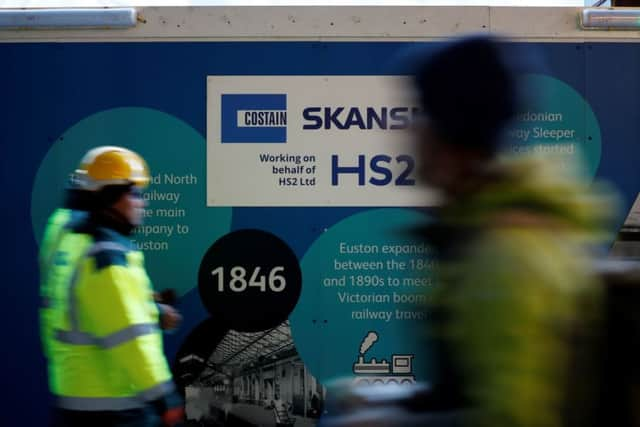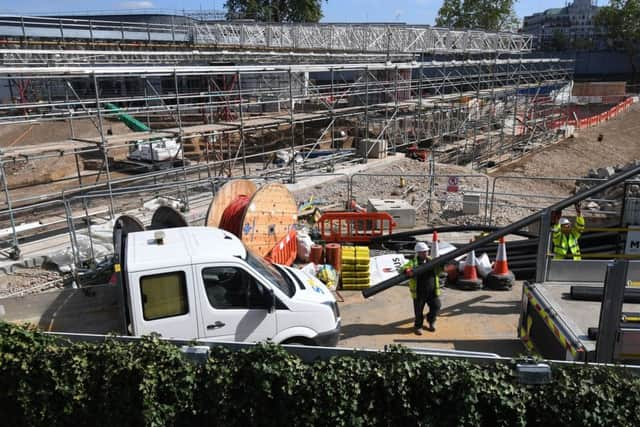Politicians would rue scrapping HS2 - the alternatives are much worse: Yorkshire Post Letters
As we await publication of Doug Oakervee’s review into HS2, Tom Richmond (The Yorkshire Post, January 25) is absolutely right to point out that the capacity argument should have been nailed before now.
The collective failure of national and local government bodies to get the capacity message across has generated the perception that HS2 is an expensive waste of money for fast trains, as set out in Paul Rouse’s letter published on January 27.
Advertisement
Hide AdAdvertisement
Hide AdHe bemoans HS2 as George Osborne’s vanity project, yet claims to understand where Greater Manchester Mayor Andy Burnham is coming from as the West Coast Main Line was “always slow”. It is “slow” because of the sinuous nature of the line’s 19th century route and the mix of long-distance fast trains with regional, local and freight services that operate on it. Slow and overcrowded train journeys are not confined to the trans-Pennine routes. Nor for that matter are traffic congestion and long delays confined to the M62 corridor, as anyone who has ever used the M6 to the Midlands will attest.


George Osborne and Manchester’s politicians understand the structural limitations of the existing rail infrastructure.
They know from first-hand experience that there is no room to squeeze any more capacity from the West Coast Main Line route and that is why they support HS2. Timetable planning is hierarchical, fast trains take precedence, so removing fast trains from the existing network and placing them on new dedicated infrastructure will enable the planners to make better use of the network for local and regional passenger services, and for freight trains.
But, as Tom Richmond observed, the opportunity for wider enhancements must be articulated to demonstrate the passenger benefits from a national rail network that has both high-speed and conventional services.
Advertisement
Hide AdAdvertisement
Hide AdTransformational change to our rail infrastructure will not be achieved without investment in new lines. Simply trying to upgrade existing mainline rail corridors will generate significant travel disruption for many years to come and drive passengers away from rail and onto our congested roads.


New infrastructure will not come cheaply, but government must recognise that its imminent decisions on rail investment will shape the country’s strategic transport network for the rest of the century, not just the life of the current Parliament.